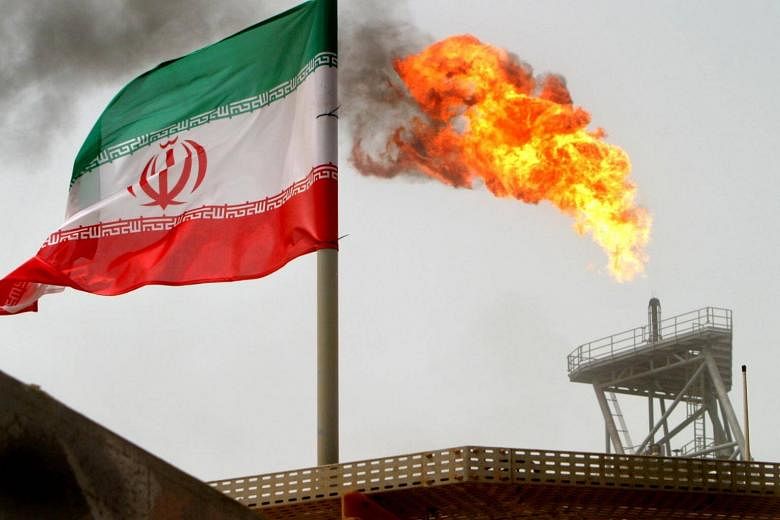LONDON • Aggressive and undiplomatic, certainly, but also extremely effective. With nearly 50 days to go before new US oil sanctions against Iran enter into force, President Donald Trump has already managed to crush the country's petroleum exports, dealing severe economic damage to Teheran.
Iranian oil exports have plunged about 35 per cent since April, the month before Mr Trump ripped up the deal that former president Barack Obama negotiated to curtail Teheran's nuclear programme, and announced new oil sanctions.
"Iranian oil exports are coming down pretty hard," said Mr Roger Diwan, a veteran oil analyst at consultant IHS Markit.
The bigger-than-expected reduction, with more to come, is a win for Mr Trump, who made a tougher stance on Iran a cornerstone of his foreign policy and re-imposed sanctions despite opposition in Europe and open hostility from China and India, the top buyers of Iranian crude.
When the sanctions were first announced, their unilateral nature prompted many in the oil market to question their effectiveness.
Oil accounts for nearly 80 per cent of Iran's tax revenue, according to the International Monetary Fund, making petroleum the regime's economic lifeblood. As oil exports have plunged, Iran's currency - the rial - has dived 60 per cent on the unofficial market, pushing up inflation.
While the success of sanctions will help Mr Trump put pressure on Iran, there may be a less welcome side effect: higher oil prices for US consumers in the run-up to November's mid-term elections.
The sanctions are reverberating through the global oil market, pushing benchmark Brent above US$80 a barrel last week.
Even though Russia and Saudi Arabia, which have cooperated closely on oil over the last two years, have offset some of the impact by boosting their own production, traders are betting it will not be sufficient to replace all the losses from Iran.
"The physical market has clearly tightened, reinforcing the bullish narrative on geopolitical and supply risks," said Mr Thibaut Remoundos, founder of Commodities Trading Corporation, who has been trading oil for more than 20 years.
It is not just the headline oil price that shows the market impact of US sanctions.
As oil refiners from China to France scramble to find alternative supplies, they are pushing up the prices of crude that can substitute for lost Iranian shipments.
Russia's Urals blend, for example, is trading at its highest premium to the Brent benchmark since the beginning of the year.
Chinese refiners recently bought large amounts of Urals from the port of Rotterdam, an unusually long voyage. Oman crude is also unusually expensive, and Basrah Light of Iraq is selling better than usual.
The unilateral American sanctions, which formally take effect only from Nov 4, have scared buyers in Europe and Asia, including Japan and India.
In the first two weeks of this month, Iran sold an average of 1.6 million barrels a day, down from 2.5 million barrels a day in April, according to Bloomberg tanker tracking.
Even though European countries opposed Mr Trump's actions, and have reassured Iran's government that they want the nuclear deal to continue, European refiners have had little choice but to comply with sanctions. Washington can cut off access to the US financial system for any company judged to be doing business with Iran.
With early indications that European nations and Japan will stop buying Iranian crude altogether next month, the country's exports can easily drop another 350,000 barrels a day by November, down to about 1.3 million barrels a day.
BLOOMBERG

